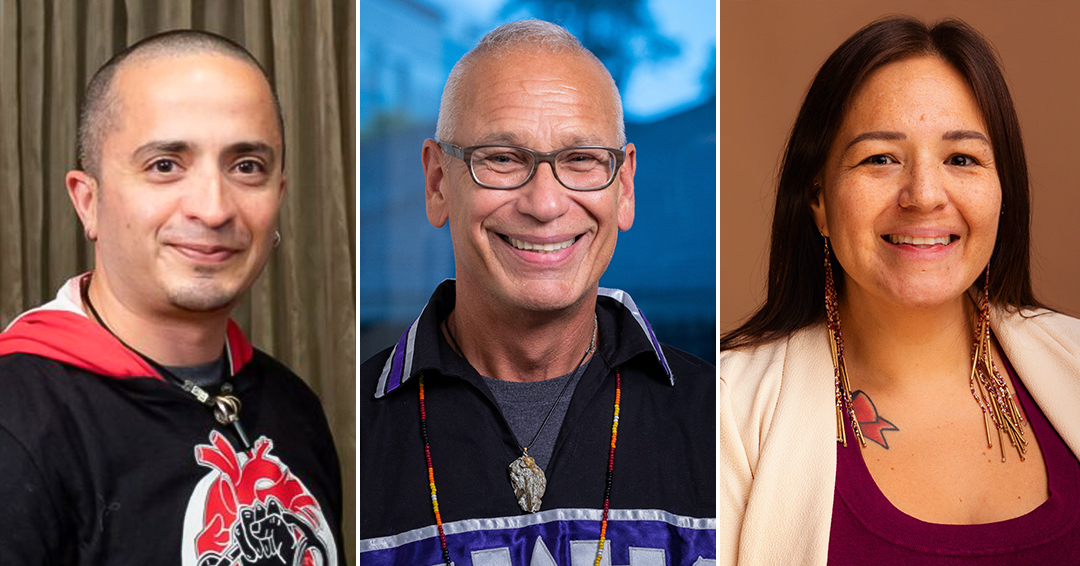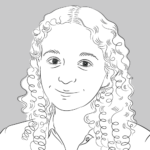
PPHS 593 Confronting Medical Colonialism provides the knowledge and tools to critically examine past and present discrimination against Indigenous peoples in Canada’s healthcare system.
Before playing a key role in the 2018 #aHand2Hold campaign, Samir Shaheen-Hussain, MDCM, learned about systemic anti-Indigenous racism in healthcare as a pediatric emergency physician.
He saw it in Évacuations aéromédicales du Québec’s longstanding non-accompaniment rule, which disproportionately affected Eeyou (Cree) and Inuit families from northern Quebec and ended after the successful campaign. He also witnessed it when providing care to Indigenous patients, who sometimes viewed him and other health professionals with distrust.
“When I was in medical school, we barely even talked about the social determinants of health, let alone structural determinants like medical colonialism,” Dr. Shaheen-Hussain says.
These experiences inspired the Associate Professor in the Department of Pediatrics and Associate Member of the School of Population and Global Health (SPGH) to design a new course for McGill students: PPHS 593 Confronting Medical Colonialism.
Co-designed with Indigenous scholars and advocates, the course is one of the first of its kind to equip students with the tools to critically examine the colonial underpinnings of anti-Indigenous racism in the Canadian healthcare system. Although the course is open to all McGill students in U2 and above, Dr. Shaheen-Hussain hopes it will impact future healthcare providers and policy makers.
Hearing from diverse Indigenous voices
To develop the course, Dr. Shaheen-Hussain worked with several Indigenous colleagues, including Alex McComber, Kanien’keha:ka from Kahnawake Territory, Assistant Professor in the Department of Family Medicine, and Sarah Konwahahawi Rourke, Ed.D., a member of the deer clan of Akwesasne Kanien’keha:ka Nation and Director of the Indigenous Health Professions Program. He also received input from students like Sidney Leggett, who is Red River Métis and a 2022 McCall MacBain Scholar who completed a master’s degree in epidemiology and biostatistics at the SPGH.
The course draws heavily from Dr. Shaheen-Hussain’s award-winning book, Fighting for a Hand to Hold: Confronting Medical Colonialism against Indigenous Children in Canada. It also uses a playlist of over 50 songs by Indigenous and non-Indigenous artists to address themes discussed in each class and engage students in different ways. Indigenous-led resistance, revitalization and resurgence initiatives in response to medical colonialism in Canada, such as Joyce’s Principle, are also highlighted.
Prof. Rourke led a class on the legacy and ongoing realities of systemic racism in healthcare, with an emphasis on the experiences of Indigenous women, girls and 2SLGBTQQIA+ people. She says PPHS 593 stands out for its commitment to centring Indigenous voices, lived experiences and leadership.
“It’s not just a course where students learn about issues,” she explains. “They’re asked to confront their own positionality and responsibilities in dismantling systems of oppression. We don’t stop at naming racism – we explore how healthcare professionals can become accountable and act in solidarity with Indigenous communities.”
Each class featured guest speakers, including Mr. McComber as well as:
- Richard Budgell, a Labrador Inuk and Assistant Professor in the Department of Family Medicine
- Cindy Blackstock, PhD, a member of the Gitksan First Nation and Professor in the School of Social Work
- Raven Dumont-Maurice, MD, a member of the Algonquin nation of Kitigan Zibi and the Quebec First Nations and Inuit Health Content Expert at Campus Outaouais
- Josée Lavallee, RN, MSc, who is Red River Michif, member of the Manitoba Métis Federation’s Bison Local and Director of the Office of Social Accountability in Nursing.
Mr. McComber adds that inviting speakers from diverse Indigenous communities makes the course “unique and special”.
“It’s so critical to hear the stories, not to just read journal articles about a research outcome or even a lit review,” he says. “Hearing first-person stories is so significant when talking about these topics of the heart.”
It is particularly important that future health professionals, who must “remember their heart”, hear these perspectives, he adds.
A focus on strength-based approaches
PPHS 593 delves into medical colonialism in Canada, which Dr. Shaheen-Hussain defines in his book as “a culture or ideology, rooted in systemic anti-Indigenous racism, that uses medical practices and policies to establish, maintain and/or advance a genocidal colonial project”.
Past failings, such as the deaths of Joyce Echaquan and Jordan River Anderson, are discussed, alongside the historic and current systems that sustain anti-Indigenous racism.
However, it also highlights strength-based approaches to Indigenous health and wellbeing, emphasizing the priorities, traditional knowledge systems and community connections of diverse Indigenous peoples.
Rooting the curriculum in Indigenous ways of knowing around health and wellness was essential, says Dr. Shaheen-Hussain.
“When students come to [topics about medical colonialism in Canada], they’ll have the tools to take it in a way that has more potential to transform that knowledge,” he adds. “They actually feel like they can act rather than feeling overwhelmed by that knowledge.”
Mr. McComber taught students about the Creation story, as well as the values and worldviews important to Indigenous peoples. Mr. Budgell also lectured on Inuit health systems and principles, while Ms. Lavallée led discussions about cultural safety. Glenda Sandy, RN, MSc, a Naskapi-Cree nurse and an ambassador of the Office of Joyce’s Principle, did a special guest lecture focusing on Joyce’s Principle.
Given the often-difficult topics presented each week, Mr. McComber stresses the importance of setting aside time for students to process and discuss what they have learned.
“Those subsequent reflections should be moving the individual along a path of understanding, a path of humility, of accepting what you’ve heard that’s different, of being humble and filtering the things that you previously learned that maybe weren’t accurate,” he adds.
Fostering a desire for change
The pilot course filled quickly, and the final cohort included 22 undergraduate and graduate students across various fields, including biomedical sciences, dental sciences, nursing, public health, economics, international development, psychology and political science.
Reflecting on the course’s reception, Prof. Rourke recalls the students’ emotional response.
“Many expressed anger, sadness and frustration. But more importantly, there was a clear motivation among them to act,” she says.
“I emphasized to them that awareness is only the first step. We need healthcare professionals who are committed to challenging policies, holding their institutions accountable, and supporting Indigenous-led initiatives that prioritize cultural safety and respect for our inherent rights.”
Amid glowing student evaluations, Dr. Shaheen-Hussain hopes the course will continue to empower students to take action against anti-Indigenous racism before starting careers in healthcare or other fields, but also in the here and now beyond institutional walls.
“I get this feeling from the students that there’s a level of curiosity, humility but also meaningful engagement – wanting to be involved, wanting to change things,” he says. “To me, that is very reassuring but also inspiring.”
PPHS 593 Confronting Medical Colonialism is open to all McGill students (U2 and above) and will be offered again in Winter 2026. For more information, please contact studentaffairsofficer.dgph@mcgill.ca.

